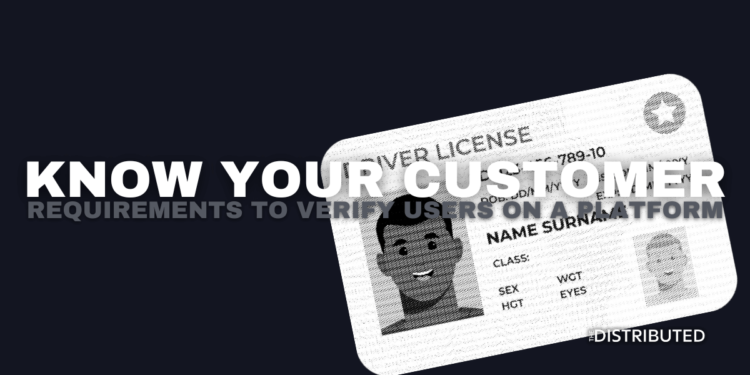What Is Know Your Customer (KYC)?
Know Your Customer (KYC) is a set of requirements set in place by financial institutions to verify the identity of users on a platform.
These requirements differ for every platform and country but include things such as date of birth, home address, license numbers, and photo verification.
Why Do Exchanges Require KYC?
KYC is set in place to prevent the laundering of funds and prevention of illicit activities. If crimes were committed through exchanges and these weren’t in place the exchange may be liable for their failed due diligence. [1]Binance – What Is KYC or Identity Verification, and How Is It Increasingly Important for Crypto? Although, this may not always need KYC requirements, rather just anti-money laundering (AML) compliance.
Are There Cryptocurrencies Without KYC?
It is possible to purchase cryptocurrencies without following through with KYC requirements on centralized exchanges through decentralized exchanges (DEXs) and peer-to-peer marketplaces – some of these may still have requirements in place.
The absence of KYC and AML means that using the platform may put you at a higher risk of fraud and other scams due to the lack of regulation and accountability.[2]Hacken – Decentralized Exchange Ranking Methodology
KYC And Decentralization
KYC as stated earlier has different requirements based on countries and platforms. Centralized exchanges use KYC in different ways than decentralized protocols might, therefore having KYC may not always breach the anonymity cryptocurrencies and blockchain is based upon.
Decentralization can still be maintained using traditional KYC by outsourcing it to third-party platforms such as identity providers who would identify the owner of a wallet and whitelist it. Although this would shift a sort of centralization to the third-party processing the data.
zkKYC is one implementation of KYC requirements that leverages zero-knowledge proofs. Using a proof like this would ensure that the users can be identified if and when it is legally or regulatory required and possibly even required to be successfully proven.[3]Pieter Pauwels – zkKYC, Page 14
KYC And Anonymity
Total anonymity within a blockchain could prove dangerous. It would shift a negative look onto the space as the worst case would be imagined such as funding terror acts and allowing illicit trading.
KYC remains in place on centralized exchanges as it allows for addresses to be traced back to a person in case of illicit transactions, where it would only be necessary and viable to link a face to an address/wallet if there was reason to do so.[4]Fourthline – Crypto’s balancing act: anonymity and KYC For the average person, anonymity remains intact unless you start breaking the law.
References



